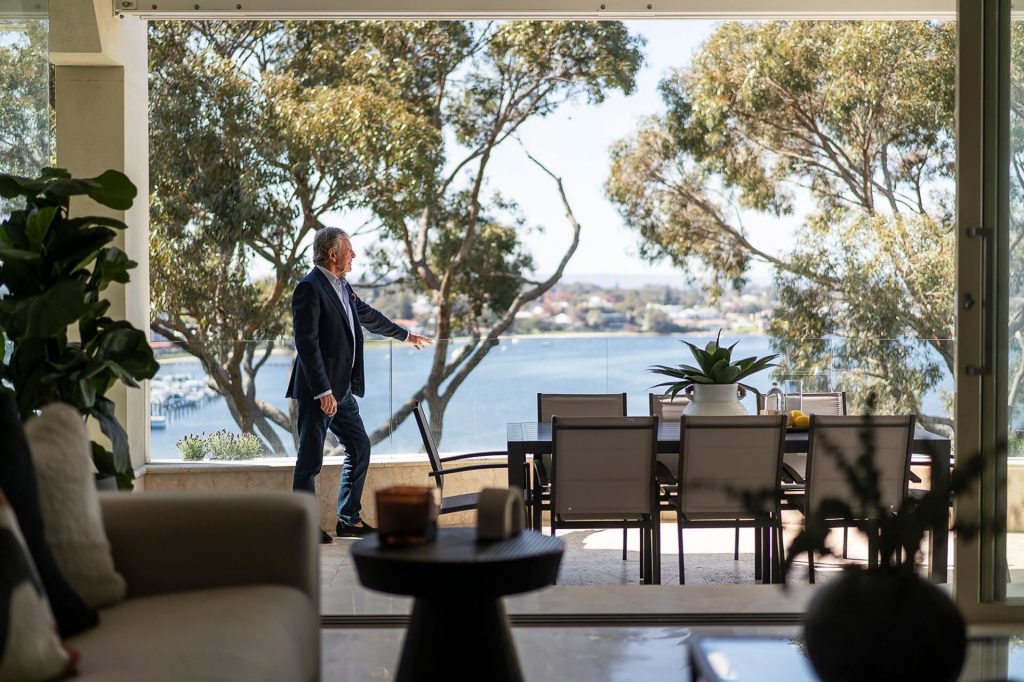The volume of potential offshore buyers interested in New Zealand properties is continuing to grow, luxury real estate agent Caleb Paterson says, with one planning to invest $50 million into the country once National’s foreign buyer policy is implemented

Word is spreading around the world about the proposed change to Government policy and the wider economic benefits of a post-election influx of wealthy migrants could be far greater than the revenue from the 15% foreign buyers’ tax.
I have been approached by buyers’ agents in New York, London and the UAE who have a network of over 1,000 multi-millionaires and billionaires.
We are now working with a growing number of buyer’s agents who have added our portfolio of off-market listings into their own and expanded our global reach by a factor of ten.
The conversations we have had with buyers in their network have given a more detailed picture of the potential macro-economic opportunity that is available to us as a nation.
I have had dozens of conversations in recent weeks with buyers from around the world and we are finding New Zealand is looking particularly attractive to the North American market.
Around half of those I have talked with are looking to make NZ their permanent home.
A lot of them have businesses offshore which they will continue to run but as they familiarise themselves with this market, they will be looking to invest in firms here.
I have had one foreign national who says he has $50 million he is looking to invest in New Zealand businesses.
I think Kiwis need to better understand the benefits of having these investors return to the country. Their wealth means a higher tax take which in turn allows for better funding of infrastructure for all of us.
With the weaker New Zealand dollar, many US buyers are looking to purchase immediately.
Like any export product, a weak New Zealand dollar is part of the appeal of our market, and these buyers recognise that when you are spending millions of dollars you are getting a lot more for your money when the exchange rate is in your favour.
As an example, it will cost a North American buyer US$1m less to buy a NZ$20m property today than it would have at the start of this year. This creates a significant drawcard for this part of the market.
The economic benefits from foreign buyers being able to access premium properties here will be wide-ranging and include the construction, automotive and hospitality sectors.
Once they make a purchase, the first thing we see them doing is put their personal stamp on it.
Normally this would be a renovation which on average is around 20% of the house value. I am working with one new owner who is spending over $20,000 per m2 on their fit out and I know of another that spent over $1 million sourcing furniture locally.
After the renovation and furnishing, they turn their attention to their toys, and luxury automotive dealers will be the main beneficiaries here. As an example, we had a prospective buyer here recently on a three-day tour to purchase a home. He didn’t like the car his staff were driving him in and stopped at a Mercedes dealership to spend $380,000 on a new model on the spot.
Unlike Kiwis, which tend to adopt a DIY approach, North American buyers are used to having a lot of support staff.
They tend to have a large number of employees who live on the grounds and are responsible for the upkeep of the landscaping, pool, outdoor area maintenance, and kitchen staff including chefs.
Due to the scale of their needs, there are more employment opportunities, and other industries that will see immediate benefit are construction, automotive and of course, the GST on the luxury purchases they make will add a significant amount to the tax coffers.
The premium hospitality industry is also likely to see increased demand – with this market segment wanting to access organic meat and produce and bespoke artisan suppliers of truffles, cheese and fine wines.
The supply of luxury properties has shrunk in recent weeks while vendors adopt a wait-and-see approach before listing, and local buyers have moved to secure multi-million dollar homes before facing competition from overseas investors.
The shortage of high-end luxury property listings have seen foreign billionaires from around the globe sending representatives to scout potential properties.
In order to meet this demand, we have been door-knocking to seek out high-end estates.
We estimate just 5% of New Zealand’s luxury properties available for sale are listed on the open market at any one time, with the rest accessible to buyers as confidential estates.
The higher the value of the property, the less likely a buyer will step into it before purchasing.
What continues to amaze me is the high number of properties we sell over 20 or 30 million where the buyers have never actually viewed the property. They will have someone from their network or a trusted staff member, who knows their criteria, tasked with purchasing for them.
Often, I will not meet the new owner until they land in New Zealand and all of my dealings to that point will be through their management team or solicitor.
At a local level we have also had Kiwis worried they may need to pay more with foreign buyers heating up the market.
They are eager to purchase now rather than pay what they believe will be a 20% premium next year and are also looking at confidential estates.
Domestic buyers have the added benefit of perhaps driving past a home they like which may not be listed and having us approach the owner for a possible sale.
Off-market confidential estates are a growing part of the market and we spend a lot of our time in an advocacy role, that is sourcing properties that are not yet available for sale. Often the owners might not have considered selling at this point, but when they are presented with a sizeable offer, beyond what they might have otherwise expected, they are more motivated to sell.
In this part of the market numbers talk. There is always a price point, no matter how wealthy you are that you would sell for. Sometimes it is unrealistic, sometimes it is within the market and we have those conversations.
It comes down to supply and demand, at the $1.5m end of the market there is significantly more stock on the market and to get any cut-through, your property needs to be immaculate. This may not translate into getting a premium for it, it may just make it more saleable.
However, in the $10 million-plus luxury space, because there is so little product available and the buyer has the means to put their own stamp on it, you can get away with a lot less presentation than the general market.
The lowered expectations reduce the pressure for the vendor, their property doesn’t need to be at an open home standard every time someone comes around.
In my experience, off-market listings will generate a premium for a vendor as purchasers appreciate the fact they are strategic in how the viewings are conducted.
Those people who may not be 100% sure they want to sell will not be disrupted and we only call when there is a serious, qualified buyer.
Marketing costs are also much lower for luxury homes sold off market.
We have two categories, there are ones that have two or three hero shots that give enough information so the buyer can see whether it is their taste but never identifies the location. The other group would have links to their property with a listing that is not publicly visible.
From a purchaser’s perspective, a lot of the time you want to make sure you are making the most informed decision you possibly can. With a record low number of luxury homes on the market right now sometimes it’s quite a challenge to get the perception you’re actually paying market value.
The confidential off-market process enables buyers to see a lot more product within the category and get a better understanding of where the market is.






